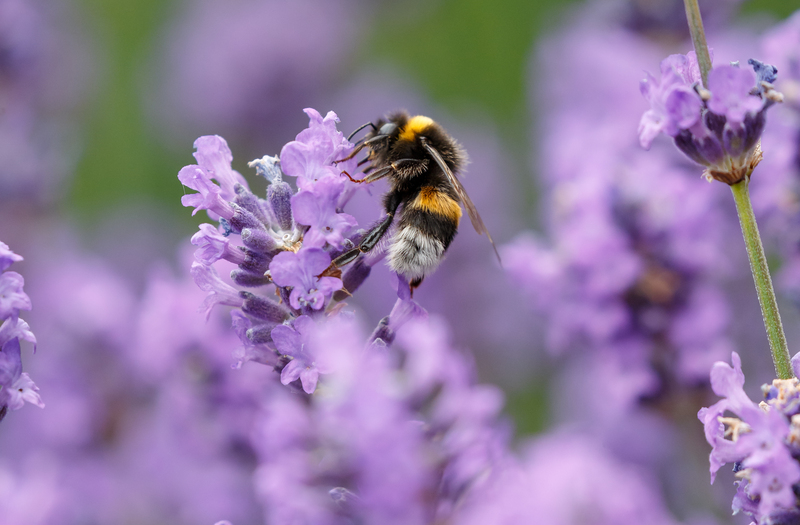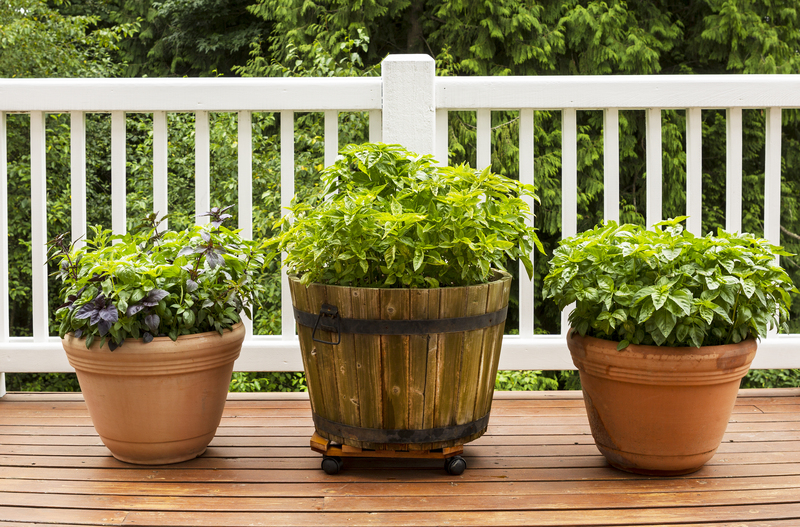Eliminate Weeds Efficiently with These 3 Simple Tips
Posted on 25/06/2025
Eliminate Weeds Efficiently with These 3 Simple Tips
Keeping your garden or lawn weed-free is crucial for healthy plant growth and beautiful landscapes. If you are frustrated with stubborn weeds overtaking your yard, you're not alone. Fortunately, you can regain control! Discover expert-approved strategies to banish unwanted plants from your space. Read on to learn how you can easily and efficiently eliminate weeds with three simple yet powerful tips.

Why Is Weed Control So Important?
Weeds compete with your desired plants for vital resources such as water, sunlight, and nutrients. If ignored, they can crowd out flowers, veggies, shrubs, and grass, leaving your landscape looking unkempt and unhealthy. Some weeds can even harbor pests or diseases that threaten other plants in your garden.
- Poor aesthetic impact: Weeds make gardens and lawns look neglected.
- Resource competition: Weeds rob soil nutrients and moisture from your preferred plants.
- Spread of pests and disease: Certain weed species attract harmful insects or act as disease hosts.
- Reduced crop yield: For vegetable or fruit gardens, unchecked weeds can drastically lower productivity.
By taking proactive steps to eliminate and control weeds, you ensure your outdoor spaces remain healthy and thriving. Let's dive into three practical weed removal tips you can apply immediately.
Tip #1: Mulch Your Garden for Natural Weed Suppression
Organic mulch is a gardener's secret weapon for efficient weed elimination. Applying a thick layer of mulch over your garden beds doesn't just help with moisture retention and soil quality; it also forms a physical barrier that keeps light from reaching weed seeds, preventing them from germinating.
How to Use Mulch to Eliminate Weeds
- Choose the right mulch: Organic options (wood chips, bark, straw, compost) enrich soil as they break down. Inorganic mulches (landscape fabric, gravel, rubber) provide long-term weed barriers.
- Apply a thick layer: Spread 2-4 inches of mulch evenly over garden beds and around plants, but avoid piling mulch against stems or trunks, as this may cause rot.
- Replenish mulch regularly: Over time, organic mulch decomposes. Refresh your mulch 1-2 times a year to maintain effective coverage.
Bonus: Mulch also helps regulate soil temperature and boosts the garden's visual appeal!
Common Mulching Mistakes to Avoid
- Applying mulch too thinly, allowing light to reach weed seeds.
- Using weedy or contaminated mulch which introduces new weed seeds.
- Burying plant stems and trunks, leading to fungal problems.
Tip #2: Eliminate Weeds by Manual Removal
Sometimes, pulling weeds by hand is the quickest and most reliable way to remove stubborn or large weeds, especially in smaller garden beds or around delicate plants. Hand weeding is most effective when the soil is moist, and the entire root is removed so that the weed can't regenerate.
Efficient Manual Weed Elimination Steps
- Weed after rain or watering: Moist soil makes it easier to pull weeds out from the root, reducing breakage and regrowth.
- Use the right tools: A hand trowel, hoe, or dandelion weeder can help you dig out deep roots.
- Grasp low on the stem: Pull weeds as close to the ground as possible to extract the full root system.
- Dispose responsibly: Don't leave uprooted weeds in the garden -- some can re-root or set seed even after being pulled.
Pro-Tip: Target Weeds Early!
Young weeds have smaller, weaker root systems. Inspect your garden regularly and eliminate weeds as soon as you spot them for less effort and greater efficiency.
Tip #3: Use Targeted Weed Control Methods
When mulching and hand-pulling aren't enough, especially for larger areas or established perennial weeds, you may need to apply additional strategies. Here's how to eliminate weeds quickly and efficiently using targeted methods:
Smart Chemical Weed Elimination
- Selective herbicides: Target specific types of weeds (like broadleaf or grassy weeds) without harming your lawn or garden plants. Always read and follow label instructions.
- Non-selective herbicides: Effective for clearing large, unwanted areas or driveways. Use sparingly and with caution to avoid damaging your desired plants.
- Spot application: Apply herbicides only where needed--avoid blanket spraying.
Note: Always wear protective gear when handling chemical herbicides. Consider the environmental impact and opt for organic or low-toxicity formulas when possible.
Organic and Non-Chemical Solutions
- Boiling water: Pouring boiling water directly onto weeds is effective for cracks in driveways or patios, but use caution near valued plants.
- Vinegar: High-acidity household vinegar can kill weed foliage. Spray on a sunny day for best results, but be aware it may also harm surrounding greenery.
- Flame weeding: A flame weeder burns weeds back, often used for driveways, paths, or between paving stones. Not suitable near flammable materials.
- Corn gluten meal: Used as a pre-emergent herbicide, it prevents weed seeds from sprouting while being safe for existing plants.
Experiment with different weed elimination strategies based on your garden's needs--a combination often achieves the best long-term results.
Additional Weeding Tips and Best Practices
Plan for Prevention
- Dense Planting: Fill your beds with healthy, vigorous plantings so weeds don't have space to germinate.
- Regular Mowing: For lawns, mow regularly and keep your grass slightly higher, as taller grass shades out weed seedlings.
- Fertilize and Water Appropriately: Healthy, well-nourished plants outcompete weeds.
- Inspect New Soil or Compost: Always check that any soil amendments or compost are free from weed seeds before adding them to your garden.
Dealing with Persistent Perennial Weeds
Some perennial weeds, like crabgrass, dandelions, or bindweed, are notoriously difficult to eliminate fully. Persistence is key--never let them flower or set seed, and dig out their roots fully whenever possible. For larger infestations, repeated efforts with a combination of mulching, hand-pulling, and targeted weed control will gradually reduce their numbers.
FAQs about Efficient Weed Elimination
What is the most efficient way to eliminate weeds?
The most efficient weed elimination is proactive prevention (like mulching and thick planting), coupled with regular hand removal and, if needed, targeted herbicide or thermal treatments. Combining these proven weed control methods addresses a wide variety of weed types for long-lasting results.
Can I eliminate weeds permanently?
No garden is 100% weed-proof, as weed seeds are easily spread by the wind, animals, or even in new soil. However, consistent attention using these three simple weed elimination tips can dramatically reduce weeds and keep your yard looking its best.
Are chemical herbicides always necessary?
No. In most home gardens, you can eliminate many weeds without chemicals by favoring mulching, hand-pulling, or safe alternatives like vinegar or boiling water. Reserve chemical use for severe infestations or areas too large for manual methods.

Conclusion: Take Control of Your Garden with Smart Weed Elimination
Eliminating weeds efficiently doesn't have to be a battle. By following these three simple tips--mulch for natural suppression, manual removal for precise control, and targeted interventions for tough areas--you'll create a healthier, weed-free environment with less effort and long-term success. Remember, regular maintenance and observation are key to stopping weeds before they become overwhelming.
Ready to reclaim your garden? Start implementing these proven weed elimination strategies today and watch your landscape grow more beautiful, productive, and enjoyable every season!
Key Takeaways: 3 Simple Steps to Eliminate Weeds Effectively
- Mulch generously to block weed growth and enrich your soil.
- Pull weeds early and often, especially after rain for easier removal.
- Use organic or targeted weed control methods as necessary for persistent problems.
Follow these tips consistently to maintain a lush, tidy, and weed-free garden for years to come!
Latest Posts
9 expert tips to jumpstart your beginner gardening experience
Transforming Backyards into Climate Change Buffers
Maximize greenery with vertical garden ideas

